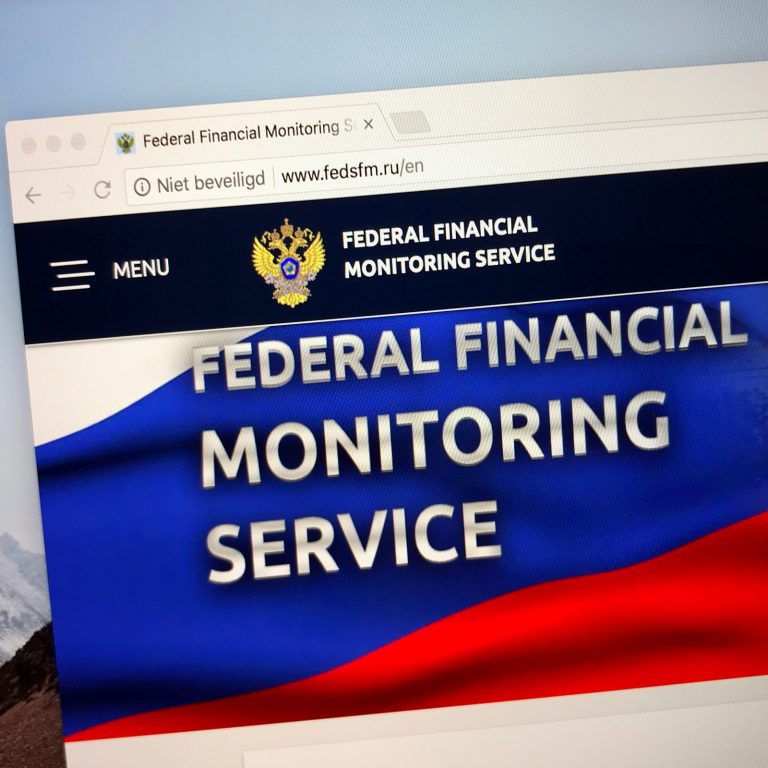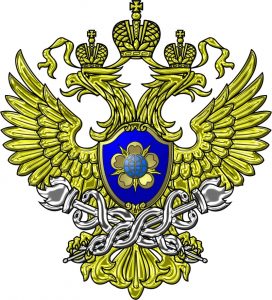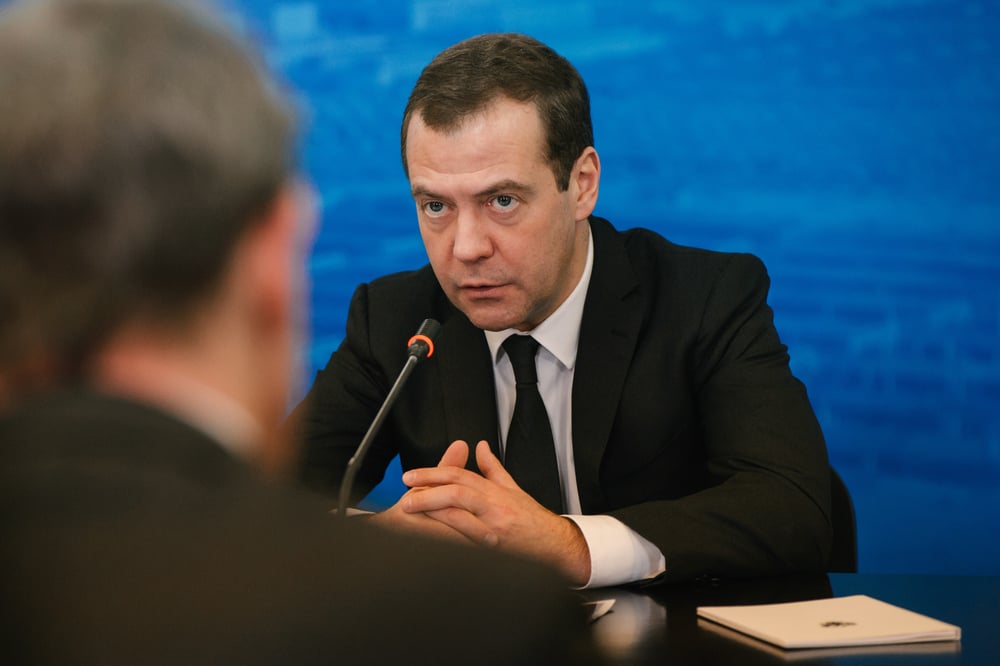
Russia’s Federal Financial Monitoring Service has revealed that it will regulate cryptocurrency-related transactions in the country, with a senior official saying that the agency will also oversee the broader cryptocurrency industry, in accordance with recommendations issued by the Financial Action Task Force (FATF).
Also read: Ukraine Plans to Fully Legalize Cryptocurrencies Within Three Years
Rosfinmonitoring to License
Exchanges and ICO Platforms
 Rosfinmonitoring, as the regulator is known in Russia, plans to register, license and monitor cryptocurrency exchanges, crowdfunding platforms and providers of wallet services for digital assets, Russian media outlets have reported. Pavel Livadny, the agency’s deputy director, said that all states participating in the FATF are expected to amend their legislation to introduce registration and licensing regimes for companies that trade cryptocurrencies and launch initial coin offerings (ICOs).
Rosfinmonitoring, as the regulator is known in Russia, plans to register, license and monitor cryptocurrency exchanges, crowdfunding platforms and providers of wallet services for digital assets, Russian media outlets have reported. Pavel Livadny, the agency’s deputy director, said that all states participating in the FATF are expected to amend their legislation to introduce registration and licensing regimes for companies that trade cryptocurrencies and launch initial coin offerings (ICOs).
The intergovernmental organization, originally tasked with developing measures to prevent money laundering, recently updated its recommendations and glossary to include “virtual assets.” The FATF uses the term to refer to “digital representations of value that can be digitally traded or transferred and can be used for payment or investment purposes, including digital representations of value that function as a medium of exchange, a unit of account, and/or a store of value.” It emphasized that virtual assets are distinct from fiat currencies and said that it will continue to review them to determine if further updates to its standards are necessary.
The financial watchdog will regulate the exchange of cryptocurrencies and fiat money, as well as transactions between digital assets. It will also monitor the transfer, custody and issuance of digital coins, the Izvestia newspaper reported. The minimum value of cryptocurrency transactions that will trigger regulatory action has yet to be determined, but the agency has said that it will track deals involving the transfer of 600,000 rubles (~$9,000) or more. It has been reported, however, that transactions below 15,000 rubles, or around $230, may remain anonymous.
Industry Organizations Criticize
Government-Sponsored Legislation
 The Russian cryptocurrency industry is still largely operating in an atmosphere of legal uncertainty. This past spring, lawmakers in the State Duma, the lower house of Russia’s parliament, supported on first reading three bills aimed at regulating the sector, but then postponed their final adoption for the fall session. The main draft law, “On Digital Financial Assets,” has since been revamped, with legislators removing key terms such as “cryptocurrency” and “mining.”
The Russian cryptocurrency industry is still largely operating in an atmosphere of legal uncertainty. This past spring, lawmakers in the State Duma, the lower house of Russia’s parliament, supported on first reading three bills aimed at regulating the sector, but then postponed their final adoption for the fall session. The main draft law, “On Digital Financial Assets,” has since been revamped, with legislators removing key terms such as “cryptocurrency” and “mining.”
The Russian Union of Industrialists and Entrepreneurs (RSPP) recently sent regulatory proposals to Prime Minister Dmitry Medvedev, the Speaker of the Duma Vyacheslav Volodin and Andrei Belousov, an aide to President Vladimir Putin. In the documents, RSPP President Alexander Shokhin criticized the current draft legislation, arguing that it sets unreasonably high standards and introduces complicated regulatory procedures. He has called for the adoption of a consolidated position, to be approved by all market participants and state regulators. An alternative bill, drafted by the RSPP, not only mentions cryptocurrencies but also grants them “special status.” According to the Kommersant newspaper, the RSPP’s proposals will soon be discussed by three different ministries.

Meanwhile, Yuri Pripachkin, the president of the Russian Association of Cryptoindustry and Blockchain, warned that implementing the regulatory framework without taking the industry’s views into account would lead to an exodus of investment capital and young talent. “There is no point in adopting the legislation in its current form,” he said, as quoted by the Vedomosti business daily.
Pripachkin added that the bills in the Duma do not even deal with the areas that determine the development of the new industry — including cryptocurrency, mining, smart contracts — but merely focus on the vague term “digital assets.” Adopting a law that addresses only tokens circulating within companies could put an end to the cryptocurrency economy, he said.
Do you think Russia’s financial watchdog should also be responsible for regulating the crypto industry? Share your thoughts on the subject in the comments section below.
Images courtesy of Shutterstock.
Make sure you do not miss any important Bitcoin-related news! Follow our news feed any which way you prefer; via Twitter, Facebook, Telegram, RSS or email (scroll down to the bottom of this page to subscribe). We’ve got daily, weekly and quarterly summaries in newsletter form. Bitcoin never sleeps. Neither do we.
The post Russia’s Financial Watchdog to Oversee the Cryptocurrency Industry appeared first on Bitcoin News.
from Bitcoin News https://ift.tt/2ETduvj
Comments
Post a Comment